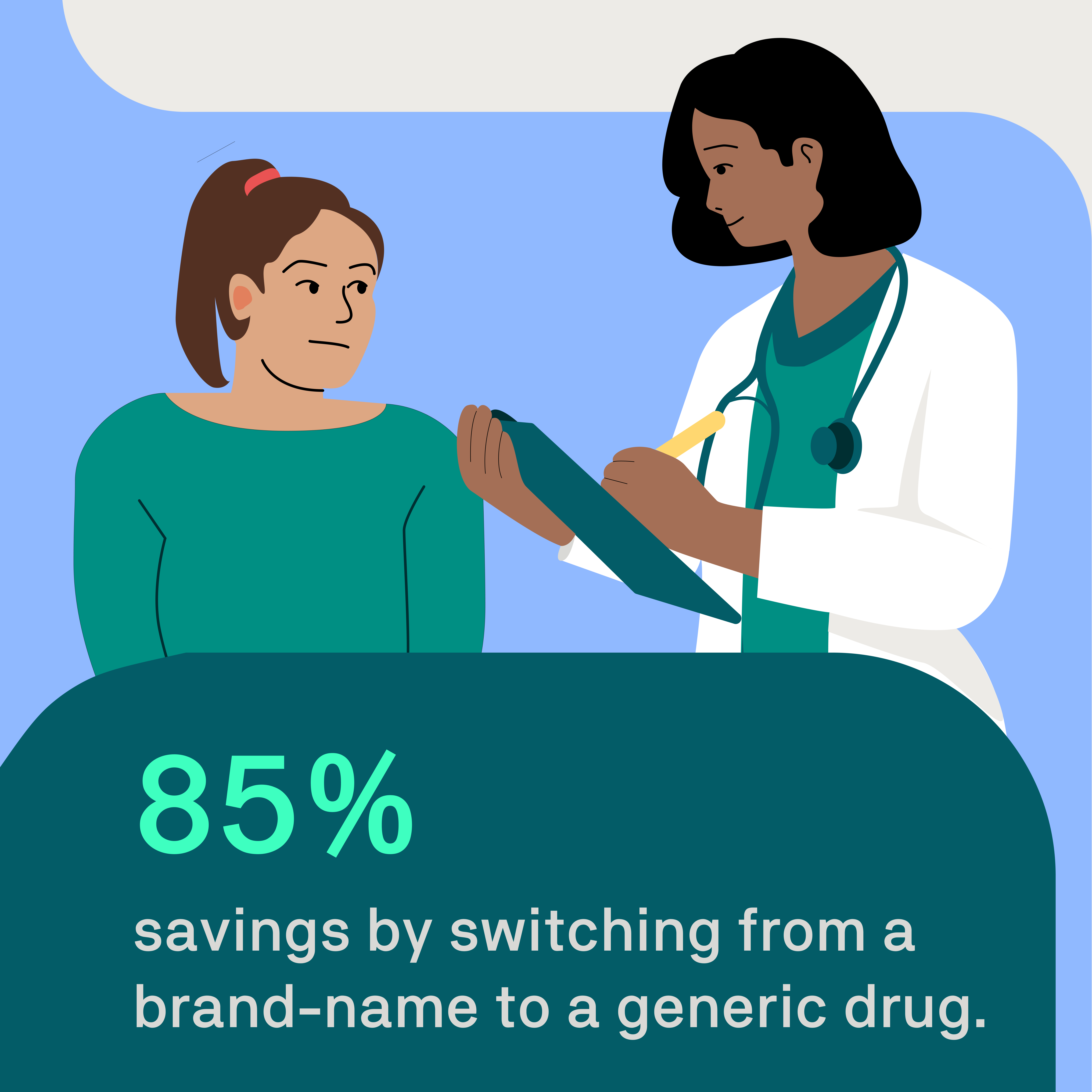Navigating over-the-counter pain relief: Tylenol (acetaminophen) vs. Advil (ibuprofen)
In the world of over-the-counter pain relief, Tylenol® and Advil® often take center stage. But while these superheroes of your medicine cabinet can both treat aches, pains, and fevers, there are certain scenarios when one medication may be better than the other.
What’s the difference between Tylenol and Advil?
While many people think of Tylenol and Advil as interchangeable, they are two completely different medications.
- Acetaminophen, the active ingredient in Tylenol, is classified as an analgesic and antipyretic, meaning it relieves pain and reduces fever.
- Ibuprofen, the active ingredient in Advil and Motrin®, is in a class of medications called nonsteroidal anti-inflammatory drugs (NSAIDs), which reduce hormone-like activities that cause inflammation and pain.
Both medications effectively treat mild to moderate pain and fever, but Advil, being an NSAID, also reduces swelling and inflammation — something Tylenol can’t do on its own.
How to pick the right medication
It’s often personal preference (or what you have on hand) that determines whether you take Tylenol or Advil to treat a headache, cold, or fever. However, there are certain scenarios where you should choose one over the other.
Tylenol is typically the better option if:
- You are pregnant or trying to conceive.
- You are treating a child under 6 months old.
- You have heart disease or high blood pressure, clotting disorders, kidney problems, diabetes, or a history of stomach ulcers.
- You’re a senior.
Advil is typically the better option if:
- You have osteoarthritis, rheumatoid arthritis, gout, or another inflammatory condition.
- You are experiencing menstrual cramps.
- You have swelling.
- You experience acute (sudden) pain.
- You are treating a strain or sprain.
- You have liver problems.
Always consult with your doctor or pharmacist if you have health problems and aren’t sure which medication to take.
Understanding dosage differences
The dosage recommendations for Tylenol are different than those for Advil.
Tylenol: The general recommendation for adults is that you can take acetaminophen every 4 to 6 hours while symptoms last, but you shouldn’t exceed 4,000mg per 24-hour period because you risk damaging your liver.
Make sure to check labels before taking over-the-counter medications, as acetaminophen is an ingredient in hundreds of medications including Excedrin, Mucinex®, Theraflu, Norco, NyQuilTM, and Sudafed®. Also, don’t assume that each brand of acetaminophen contains the same dosage or dosing instructions. For example, regular strength Tylenol contains 325mg of acetaminophen per capsule, whereas extra strength Tylenol contains 500mg per capsule.
Advil: The general recommendation for adults is that you can take ibuprofen every 6 to 8 hours while symptoms persist, but you shouldn’t exceed 1,200mg in a 24-hour period. Unlike Tylenol, which you can take on an empty stomach, Advil should be taken with food to avoid stomach upset.
Taking more than directed can increase your risk for ulcers or bleeding in the stomach lining, kidney damage, high blood pressure, heart attack, stroke, and heart failure.
Like acetaminophen, ibuprofen can also be found in other medications, most commonly Midol®, so make sure to read the drug facts label if you take any other medications in conjunction with Advil.
Tylenol + Advil : Alternating between both medications is an acceptable way to reduce fevers or manage severe or persistent pain if needed. By alternating between the two, you can take one or the other medication every 3 hours, which ends up being 6 hours between each dose of the same medication.
Be sure to read all the dosage requirements on the medication’s drug facts label. Reach out to your doctor or pharmacist if you have any questions or concerns about proper dosage.
Be aware of medication interactions
Advil is not recommended if you’re taking another product containing ibuprofen (like Motrin), naproxen (Aleve® or Midol), aspirin, diclofenac, blood thinners, ACE inhibitors, diuretics, bisphosphonates, lithium, methotrexate, cyclosporine, or with alcohol.
Tylenol is not recommended if you’re taking another product containing acetaminophen, medications that affect the way the body metabolizes acetaminophen such as phenobarbital, phenytoin (Dilantin®) and carbamazepine (Tegretol®), warfarin, isoniazid, or with alcohol.
Talk to your doctor or pharmacist before taking these medications to make sure that nothing else you take can interact with Tylenol or Advil. Potential interactions will also be listed on the drug facts label.
Our pharmacists are a great resource
When in doubt, it’s always best to ask a professional. At Express Scripts® Pharmacy, we have specially trained pharmacists available 24/7 who can provide guidance on both over-the-counter and prescription medications, answer any questions or concerns you might have, and help you avoid medication interactions.
Posted date: April 19, 2024


